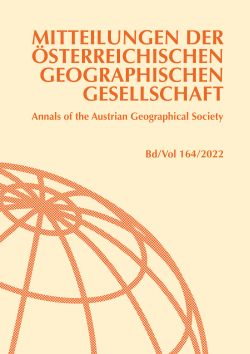
Mitteilungen der Österreichischen Geographischen Gesellschaft Band 164/2022, pp. 337-360, 2023/05/04
Band 164 (Jahresband), Wien 2022
Volume 164 (Annual volume), Vienna 2022

A recent rise in Euro-scepticism in the European Union can be linked to its unequal economic development as a consequence of globalisation. It has manifested itself in increasing support for radical right-wing parties, which is partly based on anti-globalist sentiments. One of the major expressions of this anti-globalist and Eurosceptic views has been “Brexit”, the UK’s withdrawal from the EU in 2020. Seven years before Brexit, another European country, Croatia, joined the EU. The main aim of this paper is to understand how attitudes towards globalisation differ between UK and Croatian students by analysing and comparing the students’ values, beliefs and perceptions regarding globalisation generally and EU integration more specifically. The study was conducted in 2019–2020 and consisted of a questionnaire survey on a sample of n=283 geography students (154 in Croatia and 129 in the UK). The results demonstrate that both Croatian and UK students tend to see globalisation as a positive process (57.6 %) with the largest benefits being an increase in exchange of knowledge and scientific advancements, and growth of economy. While both cohorts agree that the main negative consequences globally are increased economic inequalities and exploitation of workers, several differences in perception of negative consequences of globalisation in their respective countries are also identified.
Keywords: Globalisation; survey; attitudes; students; United Kingdom; Croatia